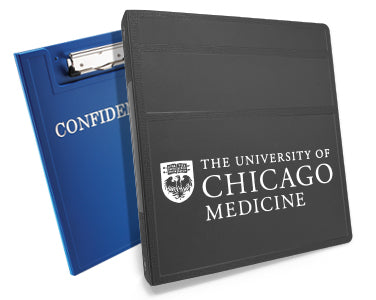
Proper immunization documentation goes far beyond simply checking boxes on a form. These records create a comprehensive health history that protects patients throughout their lives, helps medical professionals make informed decisions, and supports broader public health initiatives. You provide patients with the tools they need to access education, travel safely, and receive appropriate medical care when you maintain detailed vaccination records.
These records also serve multiple stakeholders in ways that might surprise you. Transform how you approach this essential task by learning more about the importance of documentation for immunization.
Federal and State Requirements
The Centers for Disease Control and Prevention (CDC) requires vaccination records include the vaccine type, manufacturer, lot number, expiration date, administration site, and the health-care provider’s information. State requirements often add additional documentation elements, creating a comprehensive framework that protects patients and providers.
Your practice faces potential penalties for incomplete records during audits or inspections. State health departments regularly review immunization documentation as part of their oversight responsibilities, and missing information can result in citations or fines. More importantly, incomplete records can compromise patient safety and limit your ability to provide optimal care.
Meeting these requirements also positions your practice for participation in federal programs and insurance reimbursements. Many programs require detailed vaccination records as proof of compliance with established protocols, making thorough documentation essential for maintaining revenue streams and professional standing.
Tracking Adverse Effects
Detailed records enable you to identify patterns in adverse reactions and respond appropriately to patient concerns. Comprehensive documentation provides the foundation for determining causation and planning future care for patients experiencing unexpected reactions.
The Vaccine Adverse Event Reporting System (VAERS) relies on health-care providers to submit detailed reports when patients experience adverse effects. Your thorough documentation makes these reports more accurate and valuable for identifying potential safety issues. This information helps regulatory agencies make informed decisions about vaccine safety and recommendations.
Keep Patients Prepared for Life Events
Beyond safety considerations, comprehensive immunization records prepare patients for life’s many requirements and opportunities. Educational institutions, employers, and travel destinations increasingly require proof of vaccination, making your documentation essential.
Complete Back-to-School Checklist

Schools require specific vaccinations before students can attend classes, and requirements vary by grade level and location. Your detailed records help parents and students navigate these requirements efficiently, preventing delays in enrollment or attendance. Providing comprehensive documentation allows you to focus on education rather than scrambling to reconstruct your child’s medical history.
College-bound students face additional requirements for meningitis, HPV, and other vaccinations that protect them in dormitory settings. Your detailed records can help them transition smoothly into higher education, highlighting the importance of documentation for immunization.
Travel Safely
International travel often requires specific vaccinations or proof of immunity to certain diseases. Your comprehensive records help patients plan trips without worrying about last-minute vaccination needs or documentation gaps. Travel clinics rely on your documentation to recommend appropriate vaccines and avoid unnecessary duplications.
Some destinations require authorized vaccination certificates that health-care providers must issue, and your detailed records support the creation of these official documents. This preparation prevents travel delays and ensures patients can focus on their destinations rather than medical requirements.
Facilitates Follow-Up Appointments
Your records provide the timeline and history necessary for optimal scheduling when patients need booster shots or additional doses in a series. This planning prevents patients from missing critical doses or receiving them too early to be effective.
Multi-dose vaccines require careful timing to achieve maximum effectiveness, and your documentation ensures patients complete these series appropriately.
Prevent Unnecessary Duplication
Clear documentation helps you avoid administering vaccines that patients have already received, preventing unnecessary costs and potential adverse reactions. Over-vaccination can cause increased side effects and may not provide additional protection, making accurate records essential for safe practice.
Patients who transfer between providers or move to new locations benefit from your thorough documentation, which helps new health-care providers understand their vaccination history without requiring expensive testing or duplicate immunizations.
Empower Patients With Information
Patients can become active participants in their health care decisions when they understand their vaccination history. Your detailed records help patients recognize the protection they have and identify any gaps that need attention. This knowledge empowers them to make informed choices about additional vaccinations or protective measures.
Parents particularly benefit from comprehensive records that help them track their children’s vaccination schedules and understand the protection these immunizations provide. This information supports family health decisions and helps parents advocate for their children’s needs in various settings.
Support the Whole Community

The way these records contribute to broader public health monitoring and disease prevention efforts is another reason for the importance of documentation for immunization. Health departments use aggregated vaccination data to identify community immunity levels and potential outbreak risks. Your thorough documentation supports these efforts by providing reliable information about vaccination coverage in your patient population.
Your records help public health officials identify vulnerable individuals and plan appropriate responses when disease outbreaks occur. This information can prevent widespread illness and protect community members who cannot receive certain vaccinations due to medical conditions.
Your documentation also supports contact tracing efforts during disease investigations, helping public health officials understand transmission patterns and implement targeted interventions that protect the broader community.
Inform Research and Policy Updates
Research institutions and policymakers rely on vaccination data to understand immunization effectiveness and develop improved strategies for disease prevention. Your detailed records contribute to studies that evaluate vaccine performance, identify optimal scheduling strategies, and support the development of new immunization recommendations.
This research can improve future vaccination programs and ensure that recommendations reflect real-world effectiveness and safety data. Your documentation plays a crucial role in advancing medical knowledge and supporting evidence-based policy decisions that protect public health.
The information you provide also helps manufacturers identify potential improvements to existing vaccines and develop new products that address emerging health threats or improve patient outcomes.
Step Up Your Practice With Precise Documentation
Effective immunization documentation requires reliable tools and systematic approaches that support accuracy and efficiency. Quality documentation materials help you maintain the detailed records that protect your patients and support your practice’s success.
Carstens provides health-care professionals with durable nursing clipboards, forms, and organizational tools designed specifically for medical documentation needs. Our products help you create and maintain comprehensive records that support excellent patient care while meeting regulatory requirements. Invest in documentation tools that match your commitment to patient care and professional excellence.






